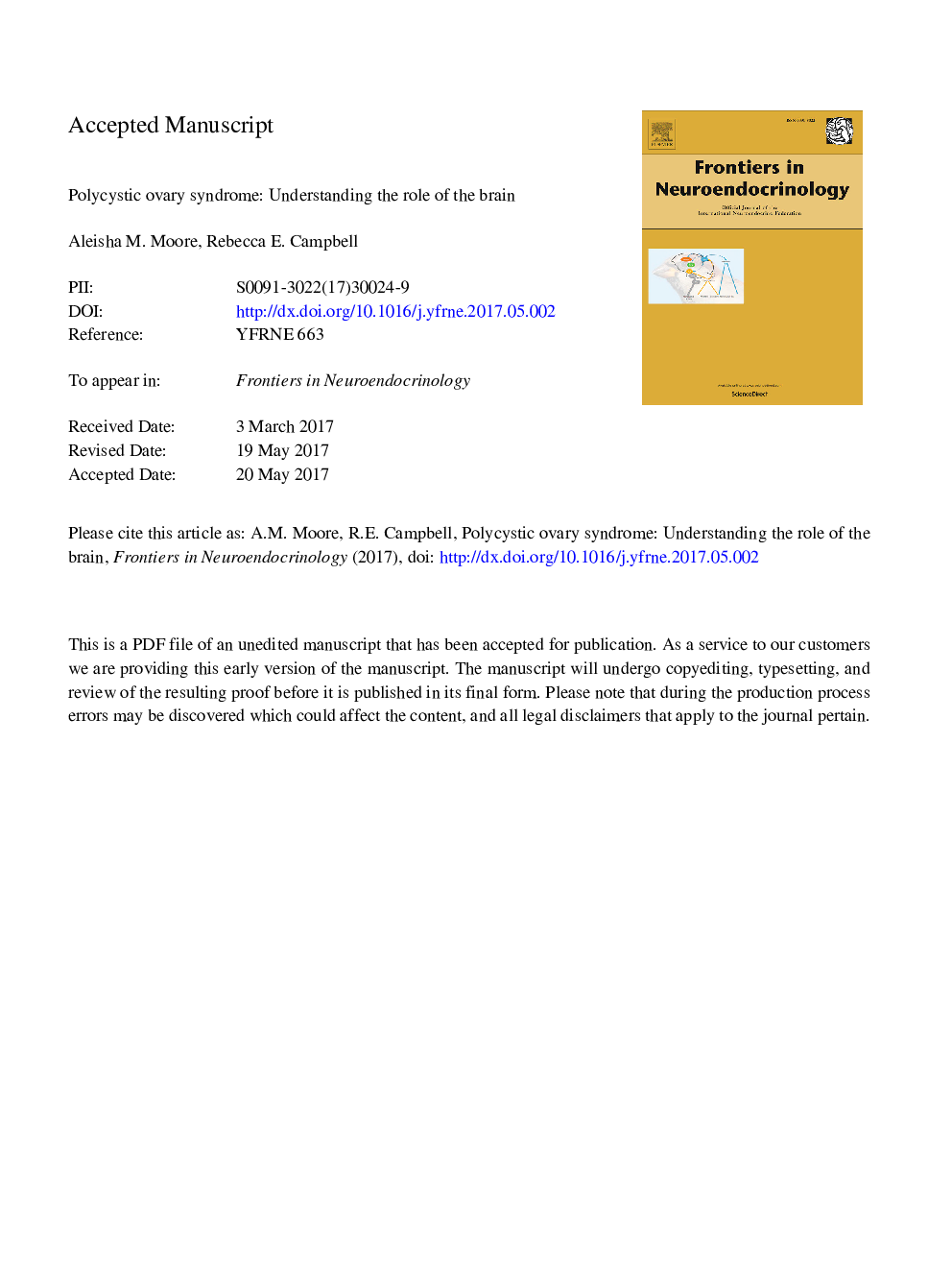| Article ID | Journal | Published Year | Pages | File Type |
|---|---|---|---|---|
| 5587505 | Frontiers in Neuroendocrinology | 2017 | 45 Pages |
Abstract
Polycystic ovary syndrome (PCOS) is a prevalent endocrine disorder and the leading cause of anovulatory infertility. Characterised by hyperandrogenism, menstrual dysfunction and polycystic ovaries, PCOS is a broad-spectrum disorder unlikely to stem from a single common origin. Although commonly considered an ovarian disease, the brain is now a prime suspect in both the ontogeny and pathology of PCOS. We discuss here the neuroendocrine impairments present in PCOS that implicate involvement of the brain and review evidence gained from pre-clinical models of the syndrome about the specific brain circuitry involved. In particular, we focus on the impact that developmental androgen excess and adult hyperandrogenemia have in programming and regulating brain circuits important in the central regulation of fertility. The studies discussed here provide compelling support for the importance of the brain in PCOS ontogeny and pathophysiology and highlight the need for a better understanding of the underlying mechanisms involved.
Related Topics
Life Sciences
Biochemistry, Genetics and Molecular Biology
Endocrinology
Authors
Aleisha M. Moore, Rebecca E. Campbell,
